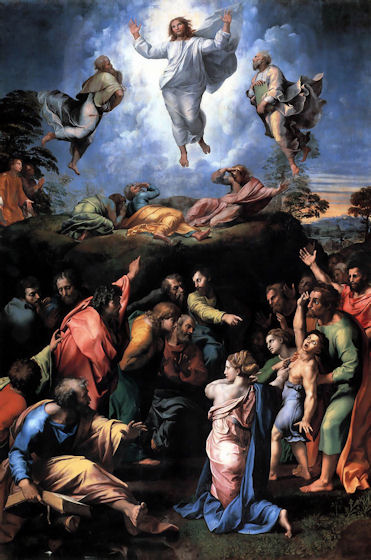Dear Lord,
Your church needs divine intervention. May I leave salutations for later? These are desperate times in your church and I need you to get involved. I have often thought of drawing you into these conversations but always vacillated. This last one really hit my button.
Lord Jonathan Sacks, a Rabbi, actually, Rabbi of Rabbis, wrote that he doubted that you would recognise the New Testament as the religion you founded. Serious stuff! And he was dead serious about it. He is not the sort to joke about issues of faith. He is a spiritual leader, counsellor, philosopher, thinker, and more. To paraphrase him, he said you thought, taught and prayed in Aramaic; and that the concept you preached were right up the Jewish alley. On the other hand, the New Testament writings were about a Jewish religion expressed in Greek (by the way he didn’t imply unintelligible, except only to you), a language that belongs to a culture that did not conceive of faith and God in the way that you did; a sort of coincidentia oppositorum. Result? Structural weakness!

It mostly has to do with the epistles of St Paul, the one you met on the road to Damascus and confounded to glory. He did a lot for your church. His industry (and the zeal of the Lord) made your church a global agenda-setter for centuries; but is he appreciated? You think! While he yet lived he was persecuted. In death he’s pilloried. All he tried to do was to be everything to everyone. In the end he only succeeded in leaving everyone arguing about everything, none more so than the debate over how one might get saved: faith or works?
Lord Sacks isn’t the first to deal with this question. He won’t be the last. The issue sizzles endlessly, dating back to the days of Paul himself. No less than your brother, a man who acquitted himself so well he was named James ‘The Righteous’, also waded into the debate. Over the ages, greater minds than mine have collided over this question and no doubt, greater minds yet to be born will come to collide over it. Before I draw you in to the debate allow me to intimate you with the main points.
New Testament writings were about a Jewish religion expressed in Greek (by the way he didn’t imply unintelligible, except only to you), a language that belongs to a culture that did not conceive of faith and God in the way that you did.
St Paul wrote that:
“Knowing that a man is not justified by the works of the law, but by the faith of Jesus Christ, even we have believed in Jesus Christ, that we might be justified by the faith of Christ, and not by the works of the law: for by the works of the law shall no flesh be justified.” [1]Galatians 2:16
Your brother replied:
“But wilt thou know, O vain man, that faith without works is dead?” [2]James 2:20
Then Paul shot back:
“For if Abraham were justified by works, he hath whereof to glory; but not before God. For what saith the scripture? Abraham believed God and it was counted unto him for righteousness.” [3]Romans 4:2-4
Not one to be outdone, your brother retorted:
“Was not Abraham our father justified by works, when he had offered Isaac his son upon the altar?Sees thou how faith wrought with his works, and by works was faith made perfect? And the scripture was fulfilled which saith, Abraham believed God, and it was imputed unto him for righteousness: and he was called the Friend of God.” [4]James 2:21-23
There are those who are able to build bridges between these patently polarised positions, but I must confess I’m not that way gifted. I prefer rather to take a much easier route: i.e. explore what’s gone before and acceptable and that line up with the teachings you left behind. As you will remember you had plenty to say about faith and works. Since you told us that you came to fulfil the Law and the prophets, that’s probably the best place to start.
Prophet Habakkuk set down the anchor on which discussions on faith hang when he said ‘the just shall live by faith’ [5]Habakkuk 2:4. He made that statement at a very difficult period in Jewish history – when the temptation for Jews to turn their backs on the covenant that bound them to God was rather strong. It wasn’t simply a case of affirming that covenant by confessions. Situations called upon them to demonstrate loyalty to God by acts that sanctified His name, even if it meant paying with their lives. Such situations were recorded in the book of Daniel – Daniel in the Lion’s den and the trio in the lake of fire.
Faith was not a medium of exchange for salvation. While acknowledging that God could do all things, faith was without regard to what God would choose to do.
King Nebuchadnezzar erects a vanity to his ego and commands all to bow to it. Meshach, Shadrach and Abednego decline. They are threatened with death. They stand their ground. They have no assurance that God will come through for them; considering what had befallen Jerusalem and the Temple, there is no reason to be optimistic and that much they tell Nebuchadnezzar:
“If it be so, our God whom we serve is able to deliver us from the burning fiery furnace, and he will deliver us out of thine hand, O king. But if not, be it known unto thee, O king, that we will not serve thy gods, nor worship the golden image which thou hast set up.” [6]Daniel 3:17-18
That is protest as faith.
Faith as conceived of by the prophets and people of your generation was not simply about believing, but about the demonstration of covenantal loyalty, fealty or what in my age is akin to nationalism. Salvation for your people at that point in time was about deliverance from oppressive forces here and now, and not about a hope for pie in the sky. Faith was not a medium of exchange for salvation. While acknowledging that God could do all things, faith was without regard to what God would choose to do.
You introduced a novel approach to the power of faith to positively impact lives and situations both in the now and the hereafter; that men ought to know that with God all things are possible, if we believe. I believe many in your church accord your words a literal reading. It’s not that God needs our faith to heal, deliver or to be God, as my little sister wrote on the pages of our blog, For The Sake Of Heaven, but that the healing we want in our world requires that we partner with God to make change happen: that is the essence of Judeo-Christian faith.
Believing as an article of salvation finds a most eloquent demonstration in one of your parables. Some people call you master, but will not feed you when you’re hungry, cloth you when you’re naked nor house you when you’re destitute [7]Matthew 25:31-46. Though they call you ‘Master’, it matters little to you, because they do not bring your healing to those who need it. And if proverbs are too complex for any to appreciate you let your feelings on believing and works known in no uncertain terms when you said:
“And why call ye me, Lord, Lord, and do not the things which I say?” [8]Luke 6:46
And what did you say?
“Heal the sick, cleanse the lepers, raise the dead, cast out devils: freely ye have received, freely give.” [9]Matthew 10:8
‘Faith’ in your world and words is a ‘doing’ concept. Let’s see it in your experience: A woman comes into your dinner with alabaster oil, washes your feet with her tears, towels your feet with her hair and moisturises your feet with her oil. You tell her that her faith heals her because she loves much.
That is Love as faith.
Confessing you as Lord and all else without sanctifying your name by acts of love is a hollow ritual. Faith as you taught implied that we should not turn up to dinner empty-handed; that we are expected to bring something to the table. Works show forth the value of faith.
This is not to stand by James against Paul. I like to think that Paul meant to write what James taught. After all according to him:
“And though I have the gift of prophecy, and understand all mysteries and all knowledge, and though I have all faith, so that I could remove mountains, but have not love, I am nothing….And now abide faith, hope, love, these three; but the greatest of these is love.” [10]1 Corinthians 13:2,13
He just had a poor habit of making simple concepts difficult to access. Maybe it’s a Greek thing!
Confessing Jesus as Lord and all else without sanctifying his name by acts of love is a hollow ritual. Faith as Christ taught implied that we should not turn up to dinner empty-handed; that we are expected to bring something to the table. Works show forth the value of faith.
Back to the appeal in my first line: I’ve lined Paul’s words against James’, no problem there. I’ve called forth your words, acts and principles but wouldn’t juxtapose your position with anybody else’s as I did with Paul and James. That’s not just because you taught with transcendental wisdom, but because your words and acts are the foundational principles by which your church stands. Yours ought to be the last word. That’s where divine intervention is necessary; that you would cause your light to shine more on your words; that your wisdom should find elevation within your own church.
That’s the case in other Abrahamic faiths. The Torah has the words of Moses and then exegetes do their thing in the Talmud. The words of God, as delivered by the Prophet Mohamed, are sacrosanct in Islam. Exegetes find other fora for sectarian theokhana. It ought to go without saying that if a faith is built around Jesus Christ, then Christ’s ought to be last word. However, that’s not the case in Christendom. But in your church, your words line up against the Apostles and on many occasions theirs are elevated above yours. In the course of time I’ll draw your attention to many of such instances.
Allow me to close this time by rejoicing with you. The church you started with between 12 and 70 people now hosts over 2 billion people spanning the entire world. Through you, God’s promise to give Abraham as many children as the stars of the sky and the sand on the seashore is being increasingly fulfilled.
With all respect Sir, you are Torah-fulfilling phenomenon.


